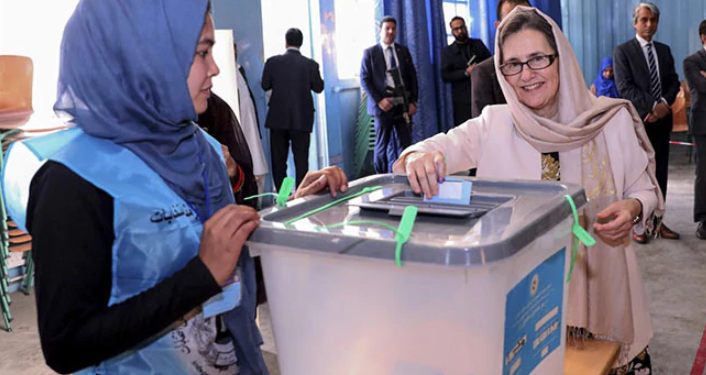Afghanistan is again at the cross-roads. Presidential polls on Saturday was not trouble-free but, significantly, Taliban fighters could not stage any major attack and were satisfied with scores of minor offensives across the land-locked nation. This meant the security agencies did a commendable job. Both contenders – President Ashraf Ghani and chief executive Abdullah Abdullah are confident of victory. It is here that problem could arise.
Preliminary results are expected by October 19 and the final results by November 7 – a long wait. At the end of this, chances are also that allegations of fraud or some other row could spoil the show as had happened in the last presidential polls. If both sides fail to gain majority support, a run-off could be expected, delaying and complicating the election process further.
The present presidential polls came at a time when US-initiated talks with the Taliban collapsed in September following a wave of violence unleashed by Taliban groups. President Trump’s stand on truce talks was clear: those who could not ensure peace before the talks cannot assure Afghanistan and the US peace after a truce too. That took the scenario in Afghanistan back to square one – of absolute chaos – directly under the watch of President Ghani.
All the same, the failure of Taliban to stage major attacks to disrupt polls offers hope for democracy in Afghanistan. It was through painstaking efforts with US support that former president Hamid Karzai introduced the democratic process there, and ruled the nation for a decade before he stepped aside and made way for Ghani. Among the first acts of Ghani was building bridges with Pakistan, and he did so with utter disregard to the ground realities. His hope was that by engaging Pakistan in positive ways, the origin of Pak-Taliban-induced terror in his country could be ended. The reverse happened. In the process, Ghani sought to keep India at a distance, despite the big help that was coming from its side to Afghanistan. Ghani realized the folly, but by the time he gained some sense, it was late. Taliban attacks continued with new vehemence and it appeared Ghani was losing whatever little control Kabul exercised over the mountainous nation where warlords called much of the shots.
The scenario in Afghanistan is likely to worsen if the US implements its plan of withdrawing much of its troops. If a truce had been agreed upon between the US and Taliban in September, the logical next step was withdrawal of US troops, which was the prime demand of Taliban groups. India too feels US troop withdrawal would be prescription for more trouble. Pakistan, on the other hand, had promised the US its support in such an eventuality, so as to enable it fish in troubled waters. What assurances the US extracted from Pakistan prime minister Imran Khan is not clear.
Hope is that the present election process will be taken to its logical conclusion sooner than later and a new government would be in place to strengthen democracy and stabilize the law and order situation with new initiatives. Abdullah Abdullah, the principal poll challenger to Ghani now, though the two shared power in the government as part of a post-2014 poll agreement, is experienced in governance matters; and one view is that he is more seasoned than Ghani, the anthropologist-turned politician and administrator who proved to be more whimsical.
On the debit side, the present polling involved less number of people compared to the 2014 polls, a fall from 7 million to 3 million, as initial reports put. Considering the troubled law and order situation punctuated by frequent Taliban attacks, and the games being played from Pakistan on a regular basis, one cannot expect too much of perfection from the Afghan polls. Democracy is still shaping up there and facing serious odds. This is time to hope for the best.






































